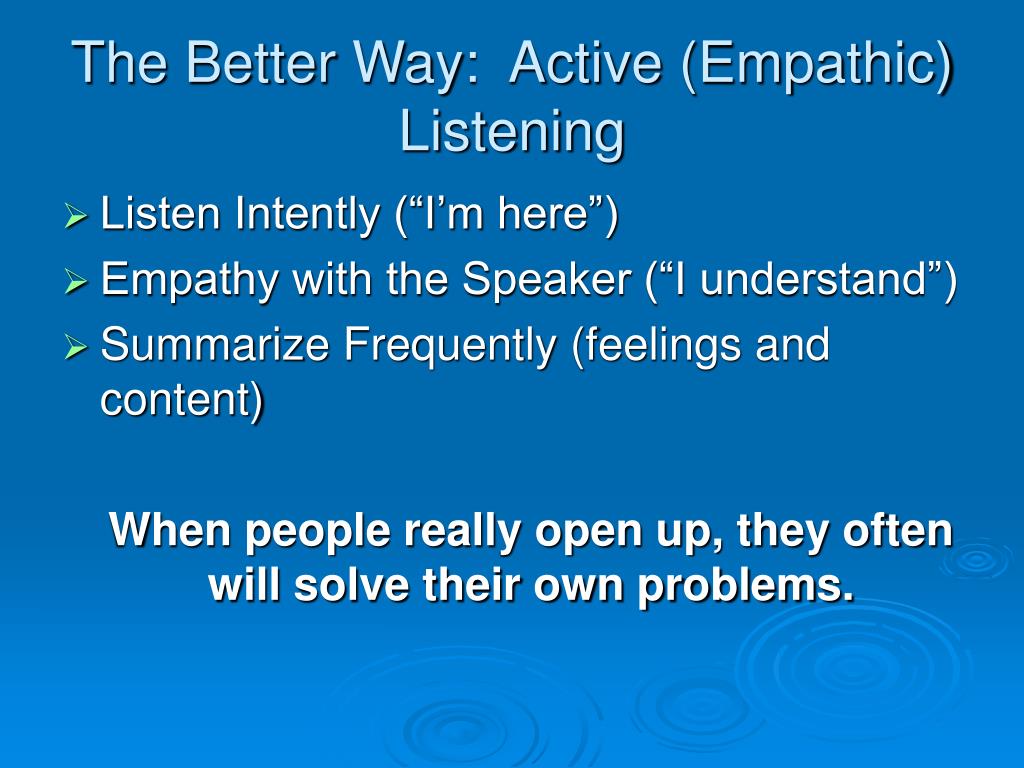

Confirm and reconfirm again to check your understanding. If there has been a misunderstanding from your side to the person talking to you, then immediately curb it to avoid its incremental repercussions. It is crucial that if you do not understand something, then you run it through again by the person so that you can be sure of what you have heard and what you have followed is the same. Having misunderstandings during conversations is one of the worst things that you can experience as an empathic listener. Often non-verbal communication reveals a lot more than you intend to, and this will give a negative message to the person sharing information. Look at your body language and non-verbal communication, which is happening without your knowledge. You should also be mindful of what is being said as well as what is not being said. For example, if someone shares with you that they have a specific issue with their job, you should gently probe and ask to describe the issue so that you can listen and provide a solution. The person should also have probing skills.

In other cases, it will restrict the flow of talk from the person. Using clear words with clear meanings is recommended rather than words with hidden meanings.Īn empathic listener should not reply in such a way that makes the person feel judged or defensive. But you have to be very careful while being expressive to the person. You have to repeat the thoughts and share feelings with the person so that he can feel comfortable expressing himself. You have to act as a reflection for the person. You do not have to agree or oppose the person, but you can simply use phrases that are classified as conversation continuers like “I understand,” “Oh I see,” etc. The first and foremost important skill of empathetic listening is patience.

However, you have to look for the correct time to voice out your opinion or be responsive. It will help you clarify your doubts as well as help the person get his problems answered from you. However, there are times when you are expected to respond to the person speaking. The primary function of the empathic listener is in its name: listening. Some people share them immediately while some people take their own time.īeing an empathetic listener, you should develop the habit of patience, and you should be able to allow them to take their own time so that they can speak freely without hindrance. You have to be patient while the other friend shares his burdens with you. If you feel that you are not adding anything to the conversation or the person, then there is no point in voicing out your opinion.Īlso Read The Step by Step Guide for Improving Writing Skills 6. And then voice out your opinion or suggestion only if necessary. In any case, before voicing out your opinion, ask enough questions to understand the issue correctly. Some things you may disagree with, or they may not go well with you. No matter what the other person shares, you should not criticize him or her. One of the most crucial parts of being an empathic listener is that you should have to be non-judgemental. Therefore do not shy away or refrain from responding to the needs of the person by your wisdom. They understand that you cannot only listen but also provide a solution if required. The primary reason that someone is sharing something important with you is that they trust your wisdom. Use whatever wisdom you have to solve the problem or help the person get through his emotional trauma. However, it is essential to remember that it is not about you but the other person therefore, you need to stop at an appropriate point in your conversation.


 0 kommentar(er)
0 kommentar(er)
